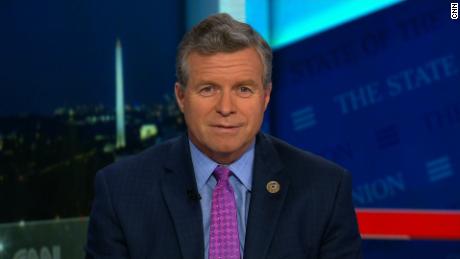Like her dear friend Justice Antonin Scalia, Ginsburg
died in the final year of a president’s term, and this vacancy will ignite yet another epic Supreme Court battle . During the prolonged debate and discussion over the
nomination of Merrick Garland in 2016, I believed that then-President Barack Obama had the right to make the nomination in a presidential election year and that the Senate should have initiated the confirmation process.
Similarly, under the Constitution, President Donald Trump is well within his rights to make a nomination, and the Senate GOP is within theirs to move forward with the confirmation process now. However, Republicans are justifiably being criticized for hypocrisy. In many instances you can simply use the words of Republican Senators from four years ago
against them now. Yes, this is a power play and it is all very cynical.
Nevertheless, if the shoe were on the other foot, with Democrats controlling both the Presidency and Senate under the same circumstances, they most assuredly would attempt fill a Supreme Court vacancy without hesitation and in record time. No one should be surprised the GOP will do everything within their power to fill this vacancy before the end of the year.
Democrats are predictably making hyperbolic and exaggerated statements about the impact of this Supreme Court fight, from overturning Roe v. Wade to stripping Americans of certain civil rights. We’ve heard all of this with past GOP Supreme Court nominations; it’s part of the Democratic playbook.
Obviously much of this rhetoric is aimed to motivate the Democratic base in the hopes of making electoral change. In this battle, the Democrats most persuasive attack will be on health care and the plight of people with pre-existing conditions should the Affordable Care Act be struck down, which was
nearly overturned by the Supreme Court a few years ago with Justice Ginsburg as part of a majority in opposition.
To be clear, the tactic of weaponizing the politics of the Supreme Court is not new nor is it reserved to only one party. Republicans have for decades employed a fairly comprehensive strategy for building and maintaining the current conservative balance of the Court. One needs no further evidence then their
reliance on outside groups like The Federalist Society to vet ideologically appropriate potential nominees.
Meanwhile, the Democrats have employed the politics of the personal destruction to tear down Republican nominees — starting with the
rejection of Judge Robert Bork in 1987, to hardball tactics used against Clarence Thomas and Brett Kavanaugh, respectively. The left attacked Bork mercilessly and declared him too extreme to be confirmed; they even turned Bork’s name into a verb. His nomination was defeated in the Democrat controlled Senate 58-42. President Reagan then nominated Anthony Kennedy who was confirmed unanimously.
It should be noted many Democrats and their allies said at the time that Kennedy would overturn Roe v. Wade. The same was said about virtually every other Republican Presidential Supreme Court nominee including swing votes
Sandra Day O’Connor and
John Roberts, as well as the liberal
David Souter.
No, Republicans most assuredly do not have a monopoly on hypocrisy and cynicism. Nor have Democrats shied away from a bare knuckle, back alley fight when it comes to past Supreme Court nominations.
Although within their right to move forward, Senate Republicans would be wise to let the voice of the American people be heard in this confirmation process. Hastily moving forward under an artificial political deadline, in this case the election, may severely damage the credibility of the nomination process.
Politically, President Trump may benefit from this Supreme Court fight. Rather than discussing Trump’s botched Covid-19 response, absurd comments or his glaring unfitness to hold office, the narrative is about something both the GOP base and soft Trump voters care deeply and passionately — in 2016 exit polls, 56% of Trump voters said
appointments were “the most important factor” in their vote.
Notwithstanding his inconsistent and contradictory statements on considering Supreme Court nominees in a presidential election year,
Sen. Lindsey Graham, chair of the Senate Judiciary Committee and who is locked in a tight reelection fight, likely
benefits from this fight, too, in deep red South Carolina. Of course, Democrats will be further angered and energized by this fight as well to the detriment of swing state Republicans like Sens. Susan Collins, Cory Gardner and perhaps a few others in competitive elections.
Meanwhile, Democrats would be wise not to overreact with hyperbole and personal accusations, or extreme proposals like court packing, DC statehood, and impeachment. Instead, they should focus on putting pressure on Republican Senators and working to defeat President Trump at the ballot box.
Unless Democrats can find four GOP Senators to oppose Trump’s Supreme Court nominee, they will lose this battle. If they’re smart, they will use this potential defeat to mobilize their base and turn out their voters for the upcoming and future elections. In fact, Democratic prospects of
winning the White House remain very favorable, and
flipping several seats in the Senate is well within their reach.
Republicans appear poised to pick up another Supreme Court seat, but the fight is just beginning. If the vote on the nominee occurs before the election, what will the impact be on the presidential race, and swing state Republican senators? If a confirmation vote were to occur in the lame duck session, and Democrats were to turn the tables in the election by winning the Presidency and the Senate, will defeated Republican Senators vote to confirm the nominee under those circumstances? We’ll know soon enough.



































